How to Use Food as Medicine and Heal Yourself at Home • Steamy Kitchen Recipes Giveaways
If you’re here because the phrase “food as medicine” caught your eye and you rolled them a little, I get it. For years, these words conjured images of overly optimistic hippies standing on street corners, selling raw milk, or even the more modern health craze of green juice, kale chips, and promises of eternal wellness.
But what if I told you it’s not just some trendy slogan? What if food really could do more than simply sustain us? What if it could heal us, support us, and even prevent diseases in ways that go beyond the doctor’s office? This isn’t about ditching science or pretending kale is a miracle cure (spoiler: it’s not). It’s about looking at food in a way that’s practical, real, and backed by science.
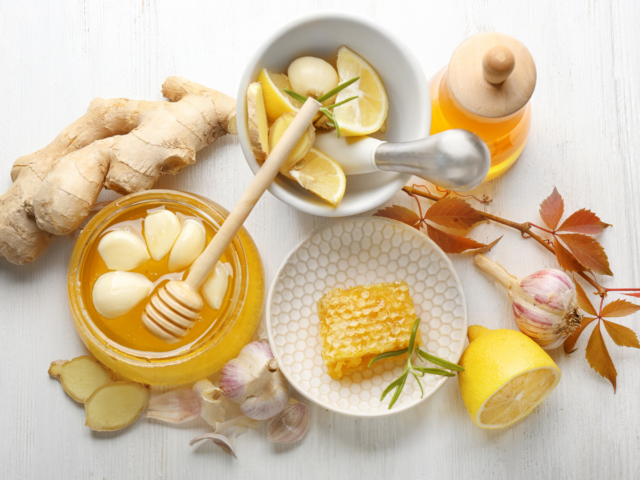
What Food As Medicine Means to Me
For me, “food as medicine” is not all good vibes and leafy greens. It’s personal. Throughout my own journey, I’ve navigated through a maze of health conditions, prescription meds, endless medical visits, and feeling lost in a healthcare system that, at times, seems anything but accessible or effective.
It started with my son Nathan, who struggled as a child with debilitating headaches and seizures. The kind that made you feel helpless as a parent, because no prescription seemed to work long-term, and watching him suffer was unbearable. After running from specialist to specialist, and trying this medication and that medication, only to have nothing work, I took matters into my own hands. After hours of research and countless failed experiments in my kitchen, I eventually learned to make my own homemade CBD, the only thing that seemed to bring Nathan relief. I didn’t know it at the time, but this was to be my introduction into more natural healing.
Being born in Hong Kong and having a doctor as a brother means I grew up with a combination of traditional Eastern remedies and modern Western medicine. But when it came down to my own battle with depression and anxiety for years, I did what most people do: I called a doctor. What followed was years of being prescribed every pharmaceutical medication under the sun, hoping to find the one that would make me feel normal again. Instead, I felt numb and detached, like life was happening to someone else.
Don’t get me wrong. I consider modern medicine a gift. I have endless respect for healthcare providers and what they do. But for people like me, who didn’t want to spend their days tethered to a pill bottle, it was clear that something vital was missing. While I still believe medical science is essential, there’s an entire world of lesser-prescribed, often overlooked remedies—adaptogens, herbs, functional fungi, and plain old nutritious food—that have the power to enhance our lives in ways we’re only beginning to understand. That being said, these aren’t new ideas. In truth, they’re ancient. But somewhere along the way, it seems we forgot that prevention and support are just as important as treatment itself.
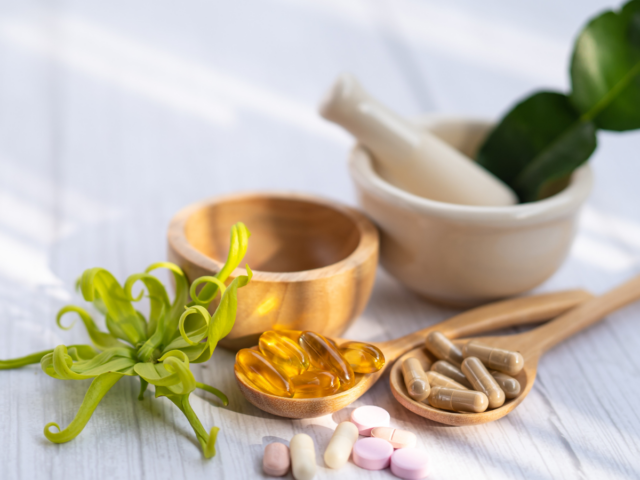
There Are Other Options
It’s easy to feel betrayed by the healthcare system, especially here in the United States, where access isn’t guaranteed, and many people are left navigating a maze of healthcare costs, insurance claims, and unanswered questions. For those dealing with chronic conditions, like heart disease, kidney disease, or chronic inflammation, the system often feels reactive instead of proactive. Instead of asking, “What can we do to support long-term healing?”, it’s more about, “Here’s a prescription. See you in six months.”
That’s where I think food and natural medicine come in. Not as a replacement for doctors, but as an untapped form of health promotion. Think about it: there’s a whole category of herbs, mushrooms, and plants that can help regulate our immune system, calm our nervous system, and reduce the risk of chronic diseases. And yet, we rarely hear about them unless we go digging ourselves. Why is that?
I’m not saying you should ditch your doctor or that eating chia seeds will magically fix all your problems. What I am saying is that we have options.
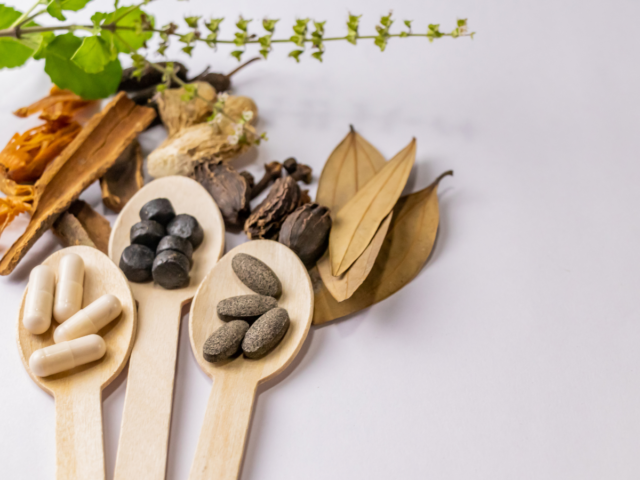
Food Doesn’t Need a Prescription
When you’re spiraling with mental health struggles, or when life feels overwhelming, it’s easy to feel powerless. But preparing a meal that nourishes your body? That’s something you can do. Exploring functional mushrooms or learning how to make your own tinctures and tonics? That’s something you can control. It’s about reconnecting with what we put into our bodies and recognizing that food can be the foundation of a healthy life.
I don’t have all the answers, but I do know this: good health isn’t just about fixing what’s broken. It’s about supporting what’s already working. It’s about giving our bodies what they need to thrive—not just survive. And while science continues to push the boundaries of what’s possible (thank you, medical researchers, for vaccines and life-saving surgeries), I believe there’s room for both cutting-edge treatments and ancient wisdom in the same conversation.
My own journey has shifted my perspective entirely. It’s what inspired me to focus more on nutrition education, especially for those who might feel stuck in that same loop I was in. And one of my favorite things about food is: you don’t need a prescription! The kitchen is one place where we can all experiment freely, and whip up wellness for ourselves.
In the end, I don’t think it’s about choosing between medicine and food. It’s about letting them work in conjunction WITH each other. Science may have given us antibiotics, but nature gave us garlic. And maybe, just maybe, the real magic happens when we embrace the benefits of both.
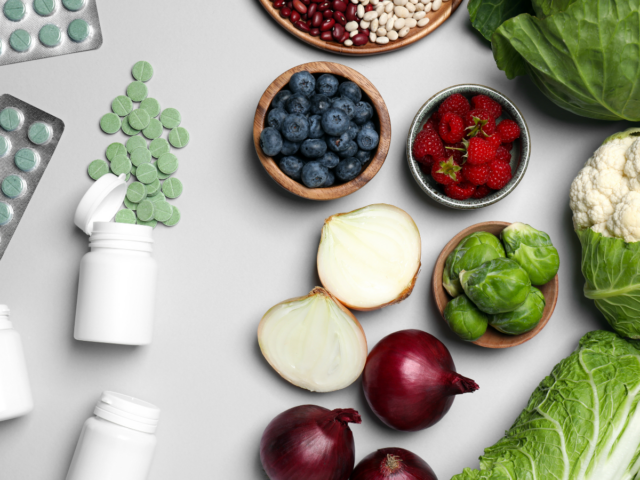
Food vs. Pills
I’m gonna start by making it clear that I’m not saying you should throw your meds in the trash. (Seriously. Don’t do that.) But hear me out.
A lot of what we pop pills for, like high blood pressure, chronic inflammation, and cardiovascular disease, can be helped or even prevented with the right dietary patterns. And it doesn’t hurt that, unlike drugs, real food comes with a side of flavor rather than a laundry list of side effects.
Take whole grains, for example. They’re rich in fiber, which not only keeps things moving (if you know what I mean) but also helps to lower blood sugar levels and cholesterol. According to a studies, swapping out refined carbs for whole grains can reduce your risk of chronic diseases, like heart disease and type 2 diabetes. It’s kind of wild to think that something as simple as oatmeal could lead to fewer medical visits down the line.
But this is just scratching the surface. Let’s talk about some other ways we can use food as medicine.
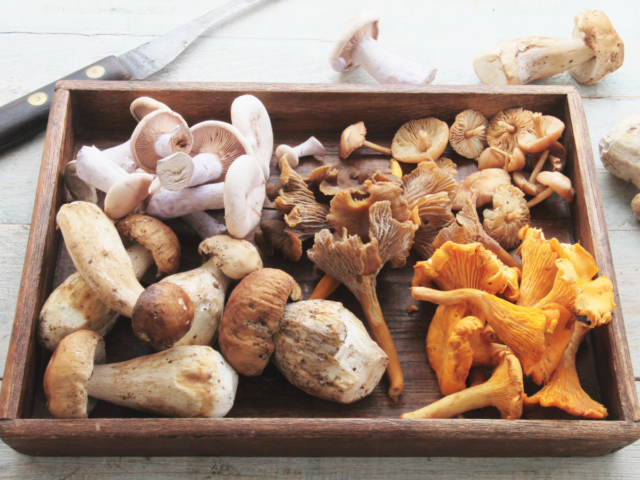
How to Actually Use Food as Medicine
Using food as medicine isn’t about dropping everything and living on green smoothies and quinoa bowls. It’s about being intentional with what you’re already eating—and maybe adding in a few things you hadn’t considered before. Let’s break down some categories that go beyond the usual “eat more vegetables” advice, with specific foods that can help support your body and mind in some real ways.
Fermented Foods: Feed Your Gut, Support Your Brain
Your gut isn’t just for digestion. It’s directly tied to your immune system, mood, and even your mental health. When your gut is happy, your whole body tends to function better. Fermented foods contain probiotics—live bacteria that support a healthy microbiome.
Examples of fermented foods:
- Kimchi: Rich in probiotics and loaded with vitamins A and C, plus capsaicin from the chili peppers, which helps reduce inflammation.
- Kefir: A fermented dairy drink that’s gentler on the stomach than milk and packed with more probiotics than yogurt.
- Miso: This fermented soybean paste not only adds umami to your meals but also contains beneficial bacteria that can help with digestion.
Pro tip: Start small. If you’re new to fermented foods, introducing them gradually can help prevent any temporary digestive discomfort.
Adaptogens: Nature’s Stress Busters
Adaptogens are herbs and plants that help your body adapt to stress. They work by balancing cortisol levels and supporting your adrenal glands. If you’re constantly stressed, adaptogens can help you feel more grounded.
Top adaptogens to try:
- Ashwagandha: Known for its ability to lower cortisol and improve sleep, it’s great for stress relief and mental health support.
- Rhodiola: Helps fight fatigue and improves focus, perfect for those midday slumps.
- Holy Basil (Tulsi): Revered in Ayurvedic medicine for its calming effects, Holy Basil also has anti-inflammatory properties.
How to use them: You can find adaptogens in powder form to add them to smoothies or in teas and capsules. Look for high-quality, organic options to get the most benefit.
Functional Mushrooms: More Than Just Pizza Toppings
Not all mushrooms are created equal. Functional mushrooms have been used in traditional medicine for centuries to support immunity, brain function, and overall health.
Here are some must-try functional mushrooms:
- Lion’s Mane: Known for supporting brain health and improving memory and focus.
- Reishi: Often called the “mushroom of immortality,” it helps with sleep, stress reduction, and immune support.
- Chaga: A powerhouse of antioxidants, Chaga is great for fighting chronic inflammation and supporting overall wellness.
How to use them: Functional mushrooms are available as powders, capsules, or tinctures. Add them to coffee, tea, or even soups for a wellness boost.
Herbs: Tiny Leaves, Big Impact
Herbs aren’t just for adding flavor—they’re loaded with medicinal properties. Many common herbs can reduce inflammation, support digestion, and boost immunity.
Herbs to stock up on:
- Turmeric: Famous for its anti-inflammatory compound curcumin, turmeric can help with chronic conditions like arthritis and heart disease.
- Ginger: Great for digestion, nausea, and reducing inflammation. Try it fresh in tea or grated into stir-fries.
- Peppermint: Known for its calming effects on the digestive system, peppermint can help with bloating and cramps.
How to use them: Fresh or dried herbs can be added to your meals, brewed into teas, or even infused into oils for topical use.
Teas: Sipping Your Way to Better Health
Teas are one of the simplest and most comforting ways to incorporate natural remedies into your day. Different teas offer different benefits, depending on the herbs and plants used.
Medicinal teas to try:
- Chamomile: Known for its calming effects, chamomile tea is perfect for reducing anxiety and helping with sleep.
- Nettle Leaf: Packed with minerals, nettle tea is great for supporting the immune system and reducing inflammation.
- Dandelion Root: This earthy tea supports liver health and can help with digestion.
Bonus tip: You can make your own blends by combining dried herbs based on your specific health needs. For example, mix peppermint, ginger, and chamomile for a digestion-friendly tea.
Tinctures and Tonics: Concentrated Healing in a Drop
Tinctures are concentrated liquid extracts of herbs, often made by steeping herbs in alcohol or glycerin. They’re super convenient for getting a quick dose of healing goodness without having to brew or cook anything.
Popular tinctures:
- Echinacea: Known for boosting the immune system, especially during cold and flu season.
- Valerian Root: Great for helping with insomnia and calming anxiety.
- Milk Thistle: Supports liver health and detoxification.
How to use them: Tinctures are typically taken by adding a few drops to water or under the tongue. Start with the recommended dose and adjust based on how your body responds.
Topicals: When Food Works from the Outside In
It’s not just what you eat. Certain foods and herbs can be used externally to support healing. Think balms, oils, and creams infused with medicinal plants.
DIY topicals to try:
- Calendula Salve: Great for soothing dry skin, minor burns, and irritation.
- Arnica Balm: Perfect for sore muscles and bruising.
- CBD Oil: Known for its anti-inflammatory and pain-relieving properties, CBD can be applied directly to sore areas or mixed into lotions.
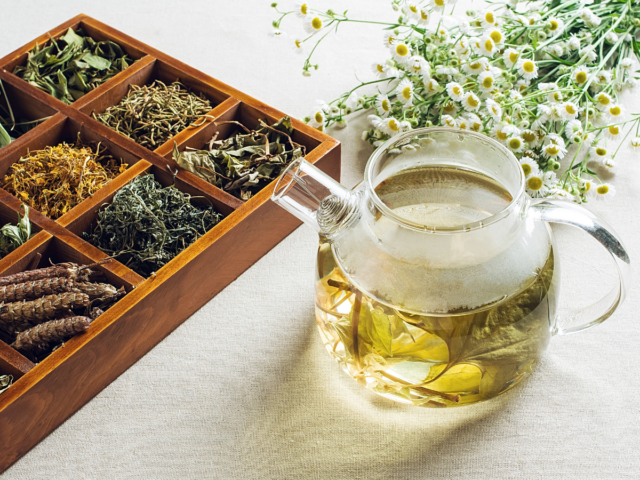
Connect with Your Body in a Real Way
Using food as medicine is about more than just achieving an ideal diet. It’s about reclaiming the ability to heal yourself in natural ways. No one knows your body better than you do, and there’s something incredibly empowering about learning to give it what it needs. Whether it’s calming anxiety with a cup of chamomile tea, easing inflammation with a golden turmeric latte, or experimenting with herbs and tinctures to relieve headaches, you’re taking charge of your well-being in a hands-on way. You’re not waiting for someone to tell you what’s best. You’re tuning in, exploring, and finding what works for you.
What is your favorite food to use as medicine? Let us know in the comments below!

